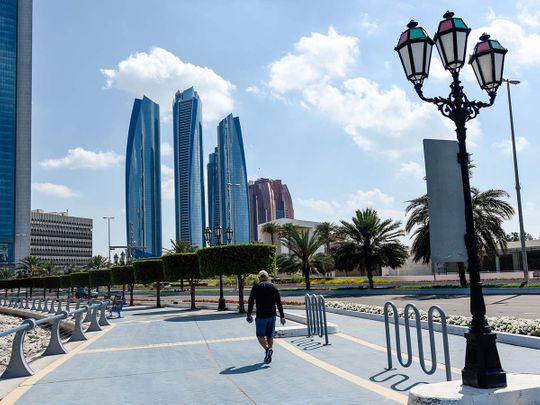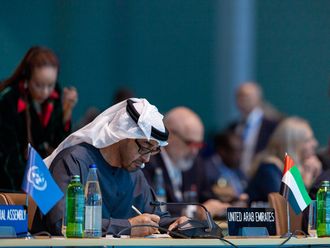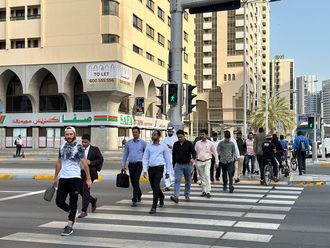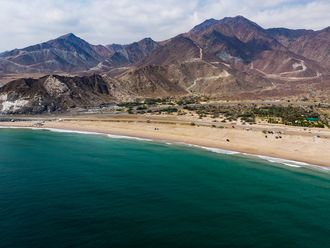
Gulf News: Air quality in Abu Dhabi emirate met national quality standards on 303 days of the year in 2021, the Environment Agency – Abu Dhabi (EAD) announced on Tuesday.
This was measured through 22 stations, which help detect the presence of pollutants in the air as well as ambient noise levels.
“Throughout 2021, we further expanded our monitoring programme to enhance and protect the air quality in Abu Dhabi where we recorded that 83 per cent of the days of the year, or the equivalent of 303 days, adhere to the National Air Quality index limits. We also engaged with local institutions and international partners to increase our understanding of air pollutants and develop our monitoring and measurement strategies,” said Faisal Al Hammadi, acting executive director of environmental quality at the EAD.
Quality monitoring
The EAD’s monitoring stations include 20 fixed stations and two mobile ones, and they capture air quality data based on 275 parameters. An accredited calibration laboratory then ensures the accurate measurement of the parameters.
“Throughout the year we had several achievements, such as successfully completing the 2020 Annual Ambient Air Quality report. This annual report on air quality in Abu Dhabi is based on data from our ambient air quality monitoring network. The 2020 data has been quality controlled and prepared as a basis for the statistics presented in the report, together with a comparison of monitoring results from earlier years. The network monitors up to 14 pollutants, six meteorological parameters, and noise at the EAD air quality monitoring stations.”
Collaborative efforts
The EAD also worked with international partners in 2021, publishing a peer-reviewed paper on the influence of COVID-19 preventive measures on air quality. The paper is significant because during 2020, EAD recorded a major improvement in the air quality of the emirate.
Air pollution measures
In addition, the environment sector regulator has also partnered with the World Health Organisation (WHO) to join the Global Air Pollution and Health Technical Advisory Group. This has been WHO’s mechanism to facilitate the harmonisation of data pertaining to air pollution and health, and to strengthen countries’ capacity to address air pollution and related health risks since 2014.
The EAD is also working with ADNOC, having developed with it the Air Emission Monitoring and Measurement Strategy for Air Pollutants in ADNOC Group Companies for emissions from the oil and gas sector.
In 2021, the EAD also completed the Fine Particle Sampling and Source Identification in Abu Dhabi Study, which was a major milestone for the Agency, Abu Dhabi and the UAE at large. The study provides a reliable scientific basis for developing air quality management plans; contributes to air quality forecasting, and provides a better understanding of sand and dust storms. It also identifies relative contributions to fine particulate matter (PM2.5) composition from natural and anthropogenic sources, and enables the effective assessment of health impacts.












